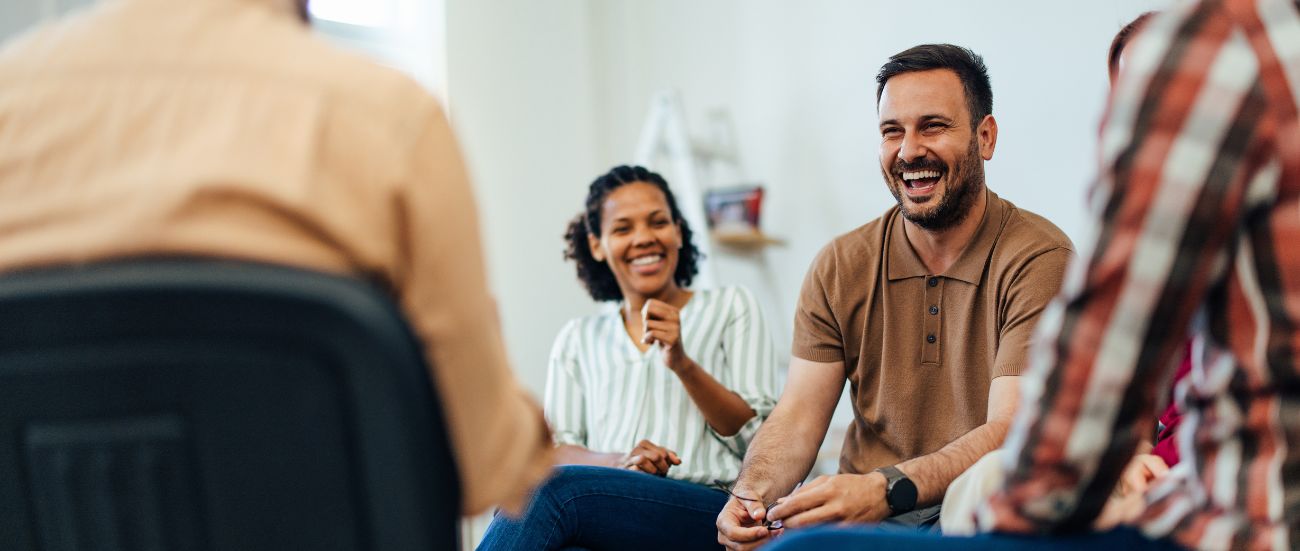

Why Community Mental Health Education is Changing Lives
Across the United States, depression and anxiety are at record highs. One in five people experiences symptoms of a mental illness each year, yet millions struggle to find the help they need. The shortage of mental health professionals means access to care is limited, especially in rural or underserved communities.
But there is hope. Increasingly, communities are finding solutions through mental health education programs—initiatives that bring evidence-based tools for recovery directly to neighborhoods, churches, schools, and even living rooms. These programs don’t replace professional treatment when it’s needed, but they give people practical skills to start improving their health right away.
Why Community Matters in Mental Health
Isolation is one of the greatest risk factors for poor mental health. When people feel disconnected, their struggles with depression and anxiety often intensify. On the other hand, community connections act as a powerful protective factor.
Research shows that programs rooted in community support improve emotional health, foster resilience, and even reduce rates of depression. In fact, when the city of Centerville, Utah, adopted the Nedley Depression and Anxiety Recovery Program™ as part of a wellness initiative, suicide rates dropped by 38% over four years. That’s the power of education and connection combined.
(For more on this, see our article on The Benefits of a Community Support Group.)
The Role of Volunteers and Churches
You don’t need to be a professional counselor to make a difference. Volunteers are at the heart of community mental health education, and studies confirm that those who dedicate their time to helping others often experience lower stress, reduced risk of depression, and greater life satisfaction themselves.
Churches and faith leaders are also uniquely positioned to meet this need. Nearly 40% of people in the U.S. turn to clergy first when facing mental health challenges. Hosting a program like the Nedley Depression and Anxiety Recovery Program™ within a church provides a trusted, stigma-free environment where people feel safe to seek help.
(Learn more about this in our article Is a Mental Health Education Program Right for Your Church?.)
What Community Mental Health Education Looks Like
A community program is not therapy—it’s education designed for everyday people. In the Nedley program, participants learn:
• How lifestyle changes such as exercise, sleep, and light exposure impact mental health.
• The role of nutrition in brain function and emotional balance.
• Simple cognitive-behavioral techniques for healthier thinking patterns.
• Stress management and coping skills for life’s challenges.
• How to strengthen relationships and build emotional intelligence.
Delivered over eight weeks, these sessions combine video lectures with small group discussions led by trained facilitators. The structure encourages not only learning but also accountability and connection—two elements critical for lasting change.
(For a step-by-step look at how to begin, see How to Start and Run a Mental Health Education Program.)
Benefits Beyond the Individual
When communities adopt mental health education, the impact extends far beyond any single participant. These programs:
• Create safe spaces where people feel understood.
• Encourage personal and group accountability for positive lifestyle change.
• Strengthen social ties, reducing loneliness and isolation.
• Promote community safety by preventing crises before they happen.
• Inspire participants to “give back” by volunteering or starting new programs themselves.
(Discover more about the personal impact of service in The Impact of Volunteering on Your Mental Well-Being.)
How You Can Get Involved
The best part? You don’t need years of schooling to get started. Through a certification process, anyone can be trained as a program director or facilitator. Sessions can be hosted in homes, churches, libraries, or community centers—wherever people feel most comfortable gathering.
By stepping into this role, you can bring hope and healing to those who need it most. And as countless volunteers have already discovered, you’ll likely find your own sense of purpose and fulfillment growing as well.
A Closing Word from Dr. Nedley
“For more than two decades, I’ve seen how education can transform lives—not just for individuals, but for entire communities. Mental health education equips people with tools that bring freedom, hope, and resilience. When we come together to learn and grow, we create communities that heal together.”
— Dr. Neil Nedley